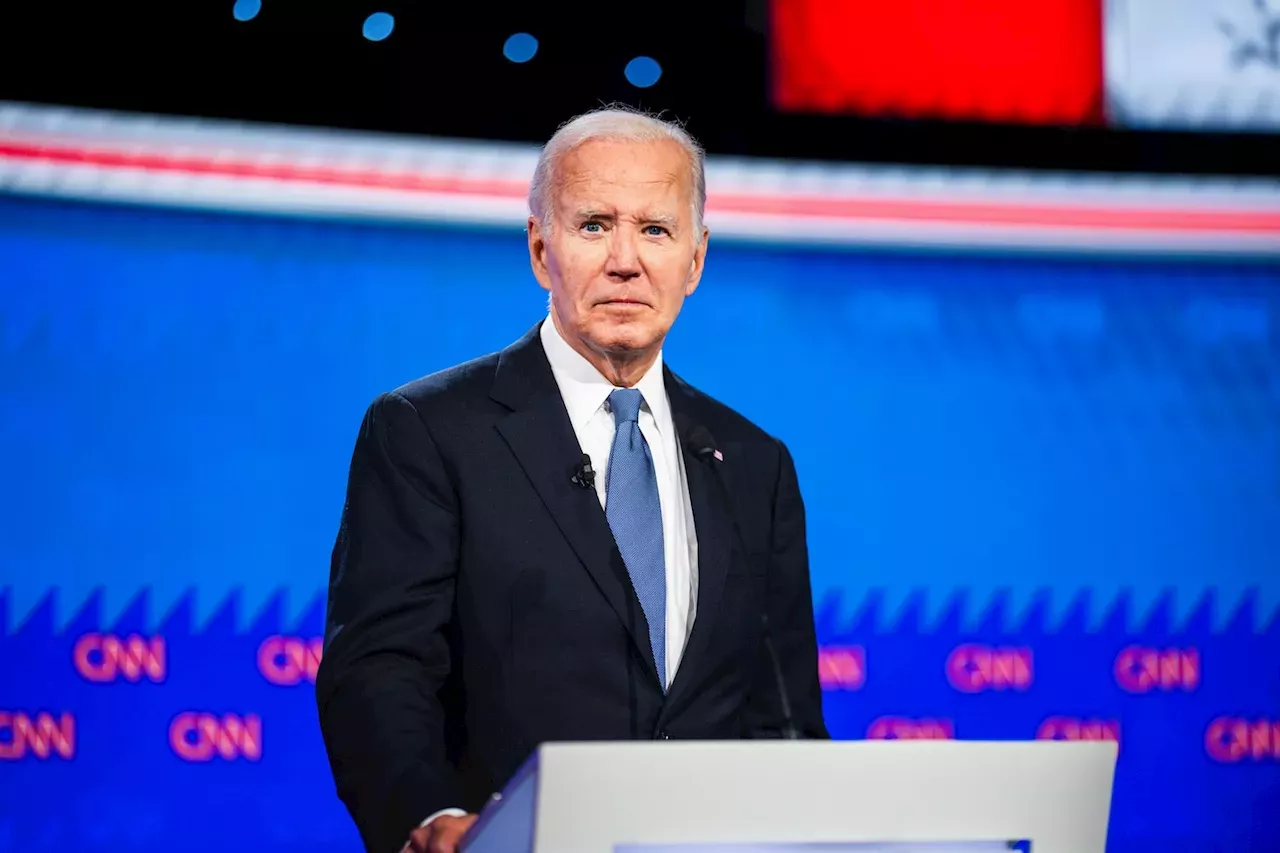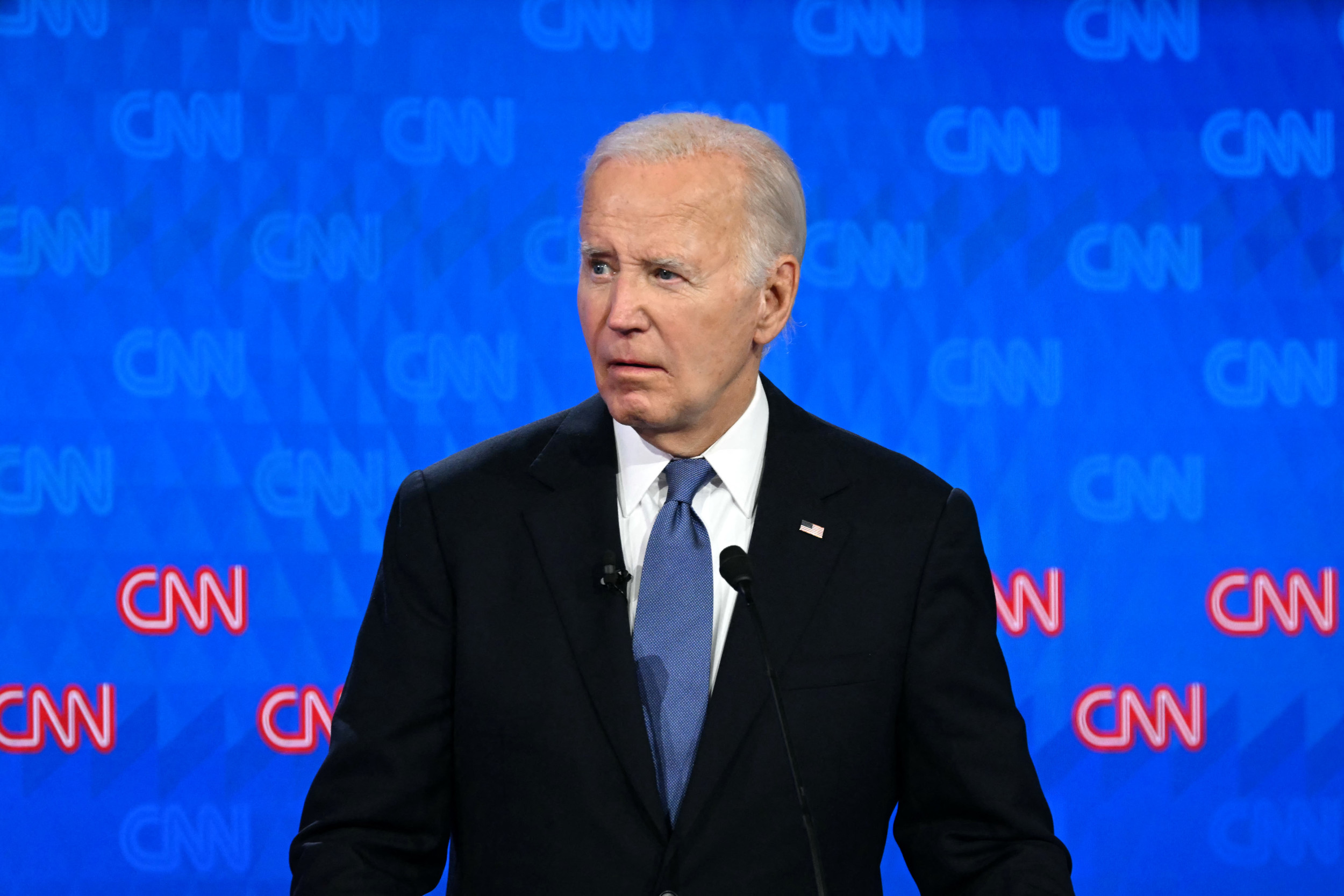Political Implications: Will Biden Step Aside
Will biden step aside – Should President Biden decide to step aside, the political landscape of the United States would undoubtedly undergo a significant transformation. The Democratic Party, the Biden administration’s agenda, and the balance of power in Congress would all be profoundly affected.
Speculation over whether President Biden will step aside has intensified in recent months, with some observers pointing to his age and recent gaffes as evidence that he may not be up to the job. However, others argue that Biden is still sharp and capable, and that he has a strong track record of accomplishment.
The debate over Biden’s future is likely to continue in the months leading up to the 2024 presidential election, with the outcome potentially having a significant impact on the future of the Democratic Party. In the meantime, all eyes will be on Biden as he navigates the challenges of a divided nation and a world in turmoil.
Whether he will be able to rise to the occasion and lead the country through these difficult times remains to be seen.
The most immediate impact would be felt within the Democratic Party itself. With Biden no longer at the helm, the party would be left without a clear frontrunner for the 2024 presidential election. This could lead to a protracted and divisive primary season, potentially weakening the party’s chances of retaining the White House.
With the upcoming midterm elections, speculation about President Biden’s future has intensified. While some believe he should step aside to make way for a younger candidate, others argue that his experience is invaluable. As the political landscape shifts, the outcome of the Dallas Wings vs.
Seattle Storm game here may provide some insight into the electorate’s mood. A decisive victory for either team could signal a desire for change, while a close contest might indicate a preference for continuity. Regardless of the result, the game will undoubtedly generate buzz among political pundits and casual observers alike.
Democratic Party and the Upcoming Presidential Election
The departure of President Biden would also have a profound impact on the upcoming presidential election. With Biden out of the race, the field of Democratic candidates would likely expand, leading to a more competitive primary. This could make it more difficult for any one candidate to emerge as the clear favorite, potentially benefiting the Republican nominee.
Balance of Power in Congress and Biden’s Agenda
In addition to the impact on the presidential race, Biden’s departure would also have significant implications for the balance of power in Congress. With Democrats holding a slim majority in both the House and Senate, Biden’s absence could make it more difficult for the party to pass legislation. This could potentially stall or even derail Biden’s agenda, including his ambitious plans for climate change, healthcare, and education reform.
Economic Considerations

Biden’s departure from the presidency could have significant economic consequences. The stock market, interest rates, and inflation are likely to be affected, with potential repercussions for businesses, consumers, and the overall economy.
Impact on the Stock Market
The stock market is a complex system that is influenced by various factors, including political developments. Biden’s resignation could create uncertainty and volatility in the market, leading to a decline in stock prices. This is because investors may be concerned about the future of the economy and the potential for policy changes under a new president.
Impact on Interest Rates, Will biden step aside
The Federal Reserve sets interest rates, which have a major impact on the economy. If Biden were to step down, the Fed might raise interest rates to combat inflation. Higher interest rates can make it more expensive for businesses to borrow money, which could slow down economic growth.
Impact on Inflation
Inflation is a measure of the rate at which prices for goods and services are rising. If Biden were to leave office, the Fed might raise interest rates to control inflation. However, this could also lead to slower economic growth.
Impact on Businesses
Businesses may be affected by Biden’s departure in several ways. Higher interest rates could make it more expensive for businesses to borrow money, which could lead to slower growth and fewer jobs. Additionally, businesses may be uncertain about the future of regulations and policies under a new president, which could lead to delays in investment and hiring.
Impact on Consumers
Consumers could be affected by Biden’s departure through higher prices for goods and services, as well as slower wage growth. Higher interest rates could also make it more expensive for consumers to borrow money, which could lead to a decline in consumer spending.
Overall Economic Impact
The overall economic impact of Biden’s departure would depend on a variety of factors, including the reasons for his departure, the policies of the new president, and the reaction of the markets. However, it is likely that the economy would experience some uncertainty and volatility in the short term.
Historical Precedents

In the history of the United States, there have been several instances where a president has stepped aside from office. These departures have been prompted by a variety of reasons, including ill health, political pressure, and legal troubles. The impact of these departures on the nation has varied, but they have all had a significant effect on the course of American history.
George Washington
The first president of the United States, George Washington, voluntarily stepped down from office after serving two terms. He was motivated by a desire to return to his home at Mount Vernon and spend time with his family. Washington’s departure from office set a precedent for the two-term limit that has been followed by all subsequent presidents.
James Monroe
James Monroe, the fifth president of the United States, also served two terms and then retired to his home in Virginia. Monroe’s departure from office was less dramatic than Washington’s, but it still had a significant impact on the nation. Monroe’s presidency had been marked by a period of great economic growth and territorial expansion, and his departure left a void that was difficult to fill.
Andrew Jackson
Andrew Jackson, the seventh president of the United States, served two terms and then retired to his home in Tennessee. Jackson’s departure from office was marked by controversy, as he had been a polarizing figure throughout his presidency. Jackson’s departure left the nation divided, and it took several years for the country to recover from the political turmoil of his presidency.
William Henry Harrison
William Henry Harrison, the ninth president of the United States, died in office just one month after taking office. Harrison’s death was a shock to the nation, and it left the country without a clear leader. Harrison’s death also highlighted the need for a clear line of succession in the event of a president’s death.
Abraham Lincoln
Abraham Lincoln, the 16th president of the United States, was assassinated in office in 1865. Lincoln’s death was a major turning point in American history, and it had a profound impact on the course of the Civil War. Lincoln’s death also left the nation in mourning, and it took many years for the country to recover from the loss of its beloved leader.